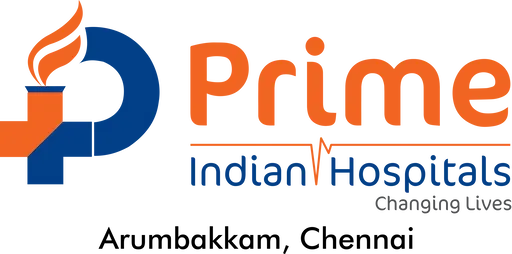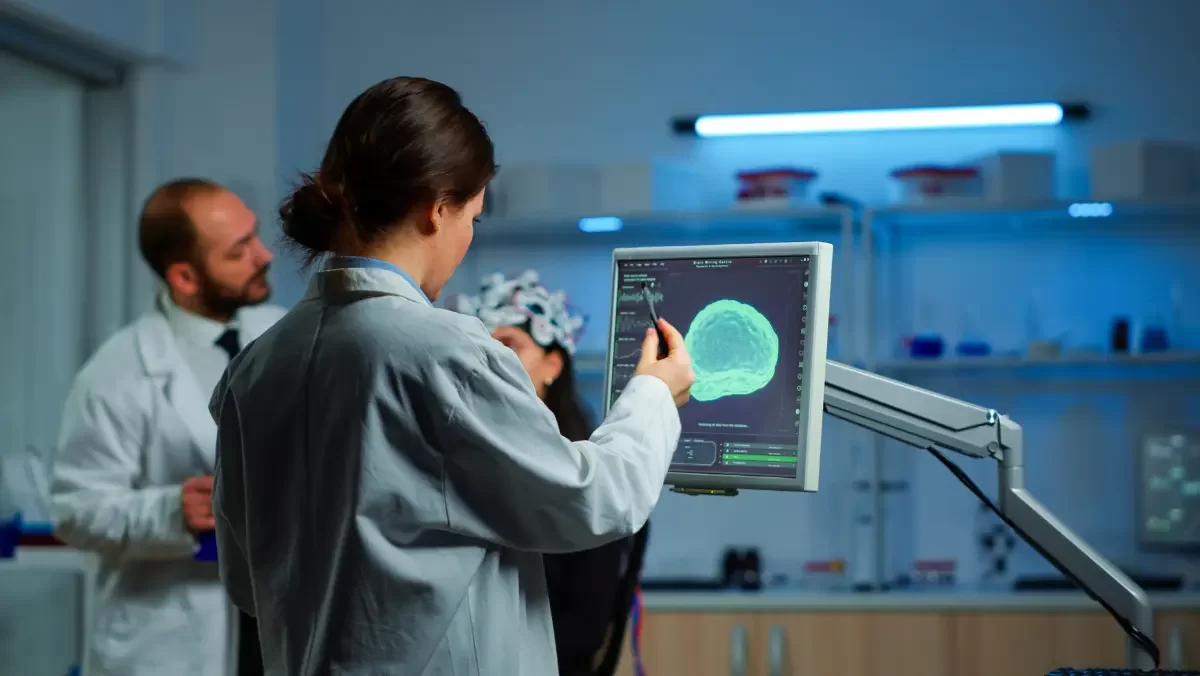EEG / Nerve Conduction Study are essential diagnostic tools used to evaluate brain activity and peripheral nerve function. EEG measures the electrical impulses in the brain to diagnose conditions like epilepsy, sleep disorders, and other neurological issues. NCS evaluates how well electrical signals travel through the nerves, helping detect conditions like carpal tunnel syndrome, diabetic neuropathy, and nerve injuries. Both procedures are non-invasive and provide valuable information to healthcare providers, allowing for accurate diagnoses and effective treatment plans. At Prime Indian Hospital, we utilize the latest technology in EEG and NCS to ensure precise and reliable results that guide treatment decisions, improving patient outcomes.
What is a Nerve Conduction Study?
A Nerve Conduction Study (NCS) is a diagnostic test used to assess the function of peripheral nerves by measuring how quickly electrical impulses travel through them. During the test, small electrodes are placed on the skin over the nerve being tested, and mild electrical impulses are used to stimulate the nerve. The speed and strength of these impulses provide insight into how well the nerves are functioning.
NCS is used to diagnose nerve disorders like carpal tunnel syndrome and peripheral neuropathy. Combined with Audiometry for hearing tests and C-arm for imaging, it enhances diagnostic accuracy and treatment planning.
- Assesses nerve health: Measures the speed and strength of electrical impulses through the nerves.
- Helps diagnose nerve disorders: Identifies conditions like carpal tunnel syndrome, diabetic neuropathy, and peripheral neuropathy.
- Non-invasive and informative: Provides essential data for accurate diagnosis and treatment planning.
What is EEG?
Electroencephalography (EEG) is a test that measures the electrical activity of the brain. Electrodes are placed on the scalp to detect the electrical impulses produced by brain cells. EEG is primarily used to diagnose epilepsy, seizures, sleep disorders, and other neurological conditions. The test records brainwave patterns, which can reveal abnormalities such as irregular brain activity, slow waves, or spikes. EEG is valuable in understanding brain function and detecting issues that might not be visible through other imaging techniques, such as CT scans or MRIs. It is also used for monitoring brain activity during surgeries or in patients with certain neurological conditions.
- Measures brain electrical activity: Detects brainwave patterns to diagnose conditions like epilepsy and sleep disorders.
- Non-invasive: Provides real-time insights into brain function without the need for surgery.
- Crucial for neurological diagnosis: Helps identify irregular brain activity that could indicate various brain-related conditions.
Risks
Both EEG and Nerve Conduction Studies are low-risk procedures. For EEG, the primary concern is minor discomfort from the electrodes placed on the scalp, which could cause temporary irritation or skin redness. However, these effects are generally short-lived. Nerve Conduction Studies carry very little risk as the electrical impulses used in the test are mild and well-tolerated by most patients. The only potential discomfort is the slight tingling sensation felt during the nerve stimulation, which is temporary and stops once the test is finished. Overall, both tests are safe and do not involve significant risks or complications, making them ideal for diagnostic purposes.
- Minimal risk: Both tests are considered safe, with low chances of complications.
- Temporary discomfort: Patients may experience mild irritation or tingling, but these effects subside quickly.
- No long-term effects: Neither procedure has any known long-term risks.
Procedure
EEG is a straightforward procedure. The patient is asked to relax in a comfortable position, usually lying down, while electrodes are attached to the scalp using a conductive gel or paste. The test may last from 20 to 40 minutes, during which the patient may be asked to perform specific tasks like closing their eyes or breathing deeply to provoke certain brain activity. In some cases, the test may involve monitoring brain activity during sleep.
For Nerve Conduction Studies, the patient will be asked to remove any clothing over the area being tested and to place electrodes on the skin at specific points along the nerve. Mild electrical impulses are applied to stimulate the nerve, and the response is recorded. The entire procedure typically takes between 30 and 60 minutes, depending on the number of nerves being tested. Both procedures are non-invasive, quick, and cause minimal discomfort.
- EEG procedure: Electrodes are placed on the scalp, and brain activity is monitored while the patient performs specific tasks.
- NCS procedure: Electrodes are placed on the skin, and mild electrical impulses assess nerve function.
- Non-invasive: Both procedures are simple, requiring no incisions or injections.
Diagnosis
EEG is primarily used to diagnose neurological disorders related to abnormal brain activity. It is crucial for detecting epilepsy, seizures, and sleep disorders, providing valuable information that can’t always be captured through other imaging techniques. The test can also monitor brain activity during surgeries or for patients in a coma, providing real-time data on brain function.
Nerve Conduction Studies are vital in diagnosing conditions that affect the peripheral nerves. These include carpal tunnel syndrome, diabetic neuropathy, and various forms of nerve damage. By analyzing the speed and strength of nerve impulses, healthcare professionals can pinpoint the location and severity of nerve dysfunction. This information is crucial for planning treatment, such as medication, physical therapy, or surgery, to address the underlying nerve disorder.
- EEG aids in diagnosing brain-related disorders: Essential for epilepsy, seizures, and sleep disorder diagnosis.
- NCS helps diagnose nerve function issues: Identifies conditions like peripheral neuropathy and carpal tunnel syndrome.
- Guides treatment: Both tests provide critical insights that help tailor personalized treatment plans for patients.
Conclusion
EEG and Nerve Conduction Studies are crucial diagnostic tools that provide valuable insights into brain and nerve function. EEG plays a vital role in diagnosing neurological conditions such as epilepsy, sleep disorders, and monitoring brain activity. Nerve Conduction Studies are essential for identifying nerve disorders like carpal tunnel syndrome and diabetic neuropathy. These non-invasive, low-risk tests help healthcare professionals provide accurate diagnoses and effective treatment plans. At Prime Indian Hospital, we use state-of-the-art technology for these procedures, ensuring our patients receive the most accurate results possible. With these tools, we are able to improve patient care, guide treatment decisions, and enhance overall health outcomes.
.














